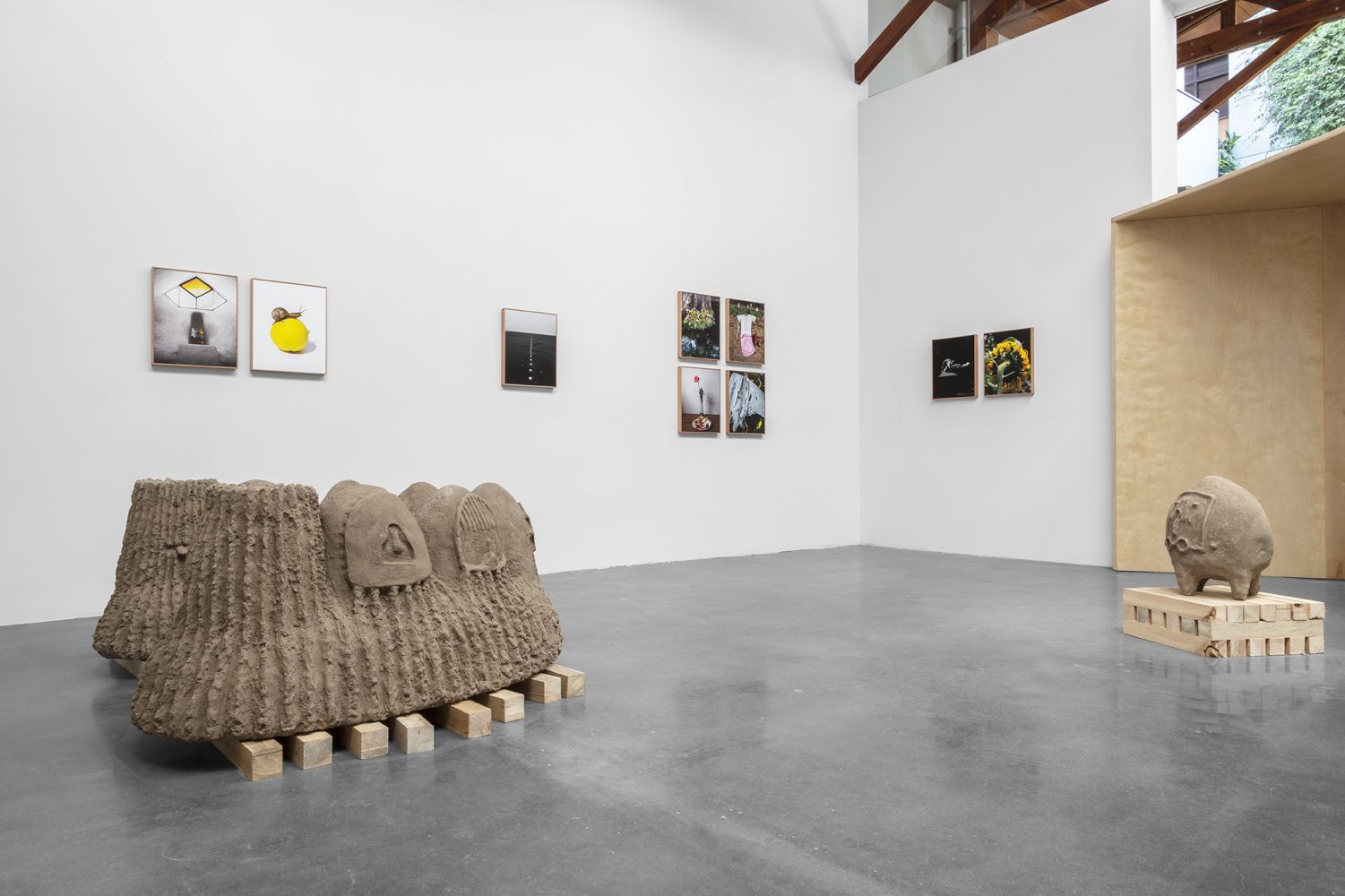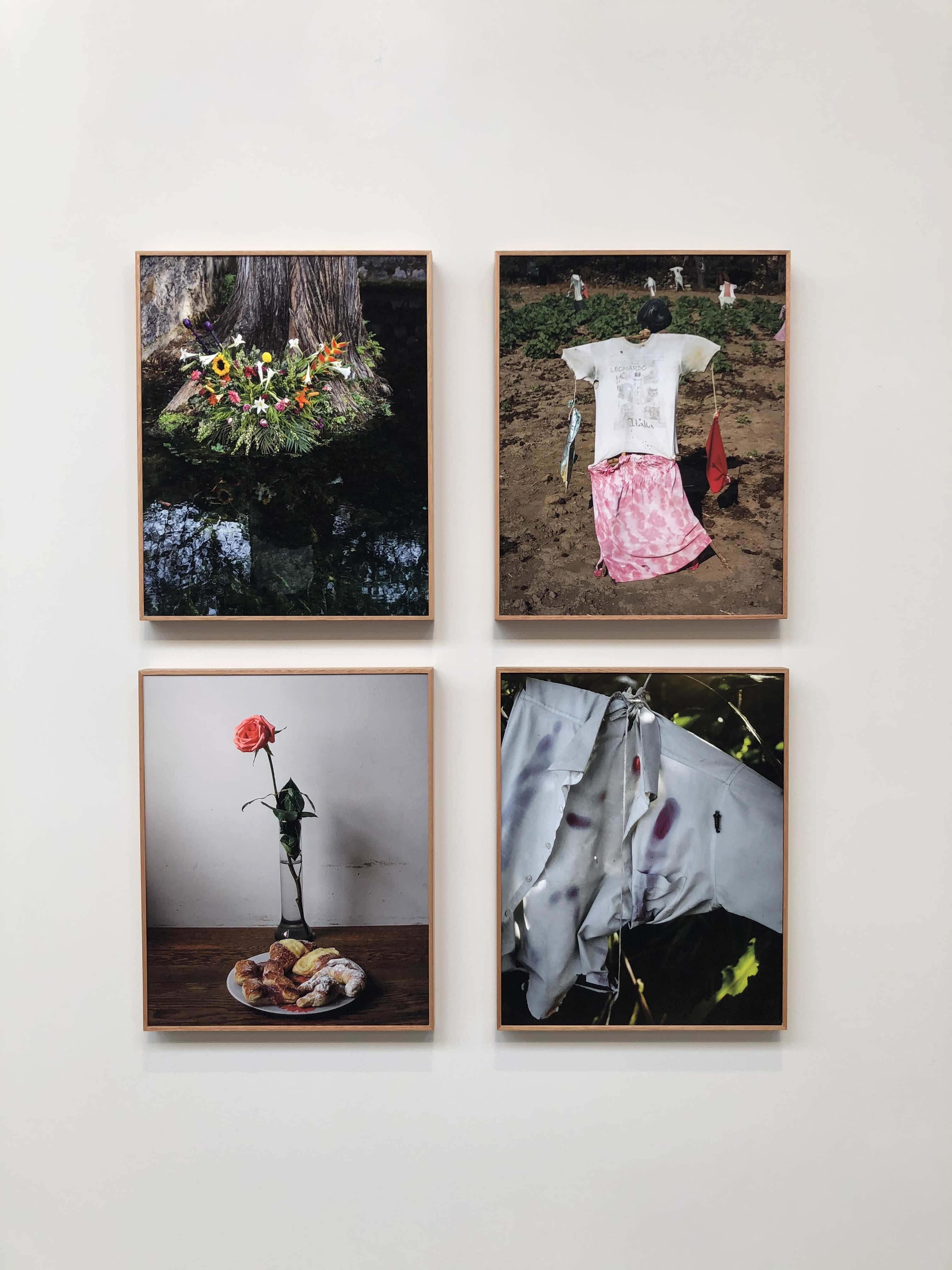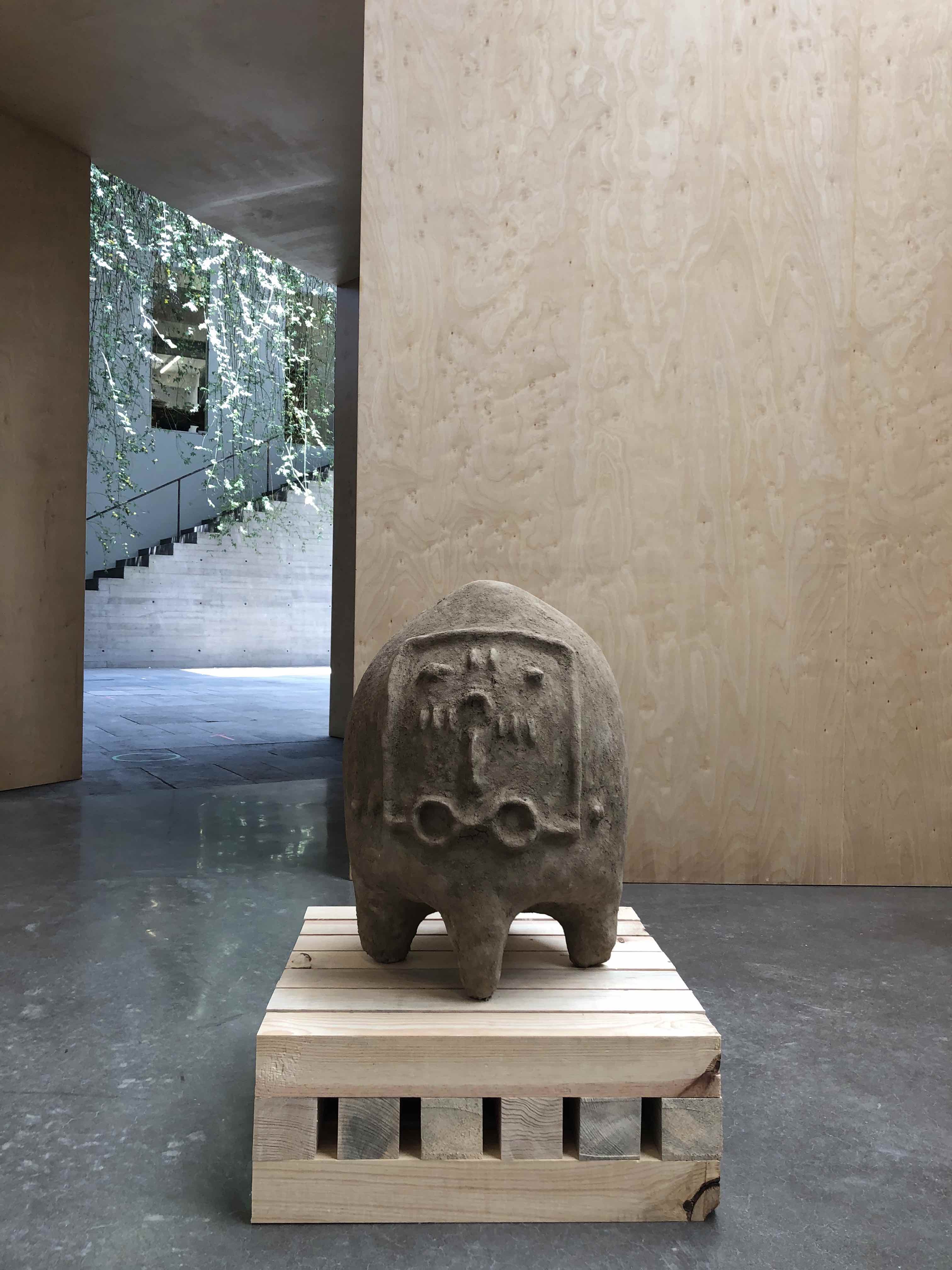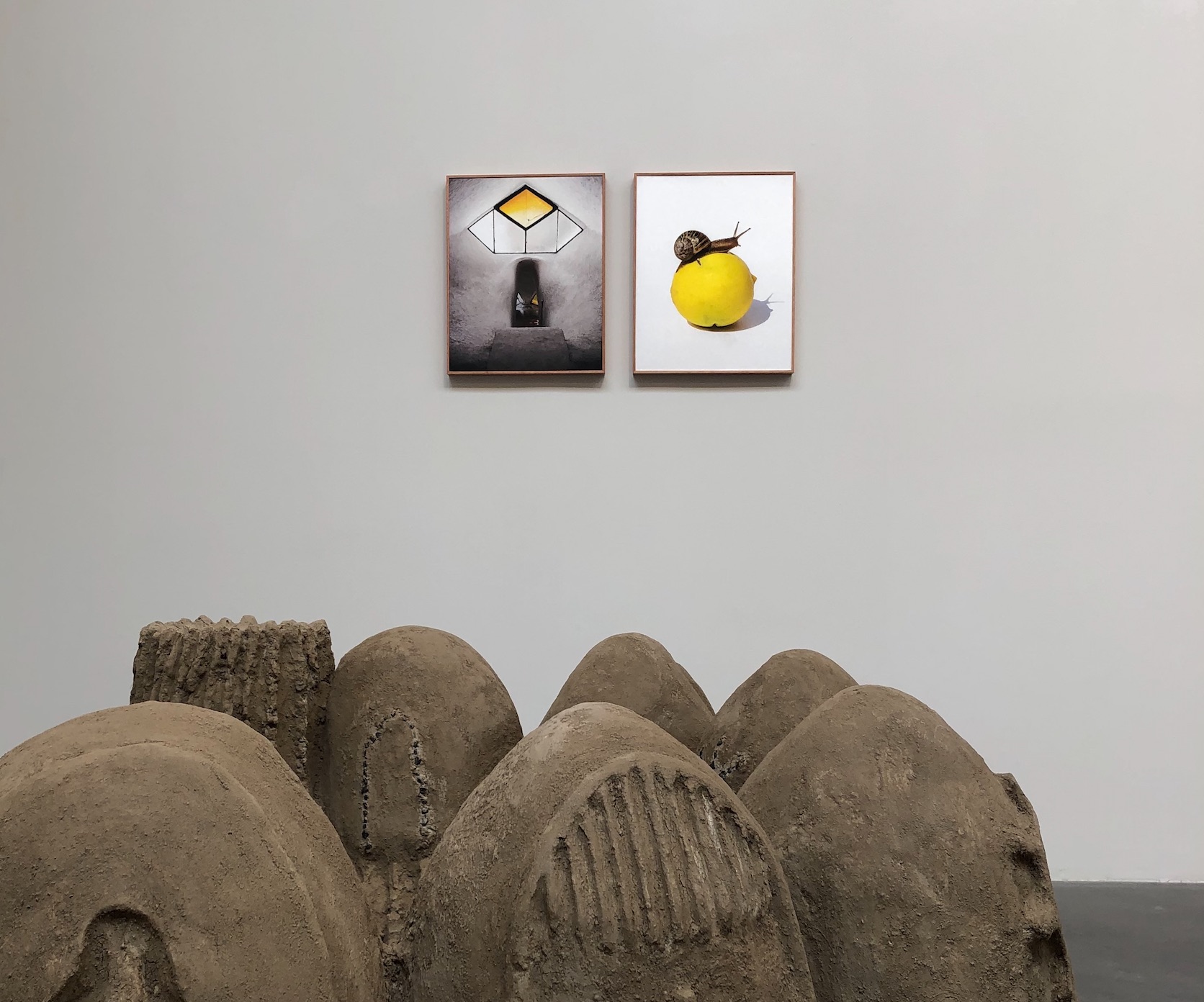
Essay
Mountains at your feet: Ramiro Chaves and Ulrik López in Siembra
by Mariel Vela
Presented by Galería Agustina Ferreyra at Kurimanzutto
Reading time
3 min
Faced with the tedium of finding ourselves to be all too human, there’s still the pleasure of being able to imagine ourselves as something else. An animal voice [...] Barking, wanting to swim and to do nothing.*1 Lying down on sun-heated staves. Ruminating over a house. Thinking of oneself with dogs and flowers. Being the tender part of the mountain.
This third planting (siembra) by the gallery Agustina Ferreyra at kurimanzutto consists of a meeting of landscapes, represented in photographs by Ramiro Chaves and adobe self-portraits by Ulrik López. The assembly of different beings and objects obliges us to rethink domestic space and the body itself as occasionally strange territories. The plants, straw, soil, and pan dulce become, in addition to those irruptions of nature in everyday life, things looking back at us and encouraging us to remake ourselves in their image and likeness.

The photographs belonging to the body of work titled NARDAR A SO are printed on a velvety paper. They’re like windows into other people’s houses and patios. We see the reverse side of a sunflower (hiding its black center), a flash through the glass, the pan dulce’s pastry cream, and a lemon on which a disoriented snail crawls. It’s as though the ghost of yellow pervades the space. The animals seem to have been interrupted during a moment of transfiguration: the spider has died atop a stem, the dog is resting as shadows appear on its fur, and a black caterpillar moves forward among purple stains.

Something unknown arises when one looks at oneself closely. Body and face trace their own geography in the pieces titled El Día y La Noche (“Day and Night”) and Las Montañas lloran cada 15 años, así es como nacen sus ríos (“The Mountains cry every 15 years, this is how their rivers are born”). These sculptures evoke a temporality beyond the human; Ulrik López’s self-portraits are inscribed within a long genealogy of men wanting to become mountains.
[...] Today, after millions of years, the mountain
is outside of time, and doesn’t know
what our life is like
or how it ends. [...]
[...] There it is, beautiful and innocent in the mist, and I enter into its perfect indifference
and I curl up into the idea of becoming another substance [...]*2
Look, by all means, but with eyes that cry rivers or perhaps with a pair of canine eyes. By the door, marking the exit from the exhibition, one finds Ramiro Chaves’s photograph Pizarra y Limón (“Board and Lemon,” 2020). A yellow ray breaks through the night. Nevertheless, I am left with the snail moving forward with its drool on the lemon. Snails are nearly blind, which is why they must see using the underside of their mollusk skin.
Translated to English by Byron Davies

*1: The italics in this paragraph refer to the text accompanying the body of work titled NARDAR A SO, written by Ramiro Chaves.
*2: Translated from José Watanabe, “Animal de invierno” in the anthology El Desierto nunca se acaba, 2013, Textofilia ediciones.
Cover picture: Galería Agustina Ferreyra, Ramiro Chaves & Ultik López. Kurimanzutto, Mexico City, 2021. Courtesy of Kurimanzutto
Published on April 15 2021